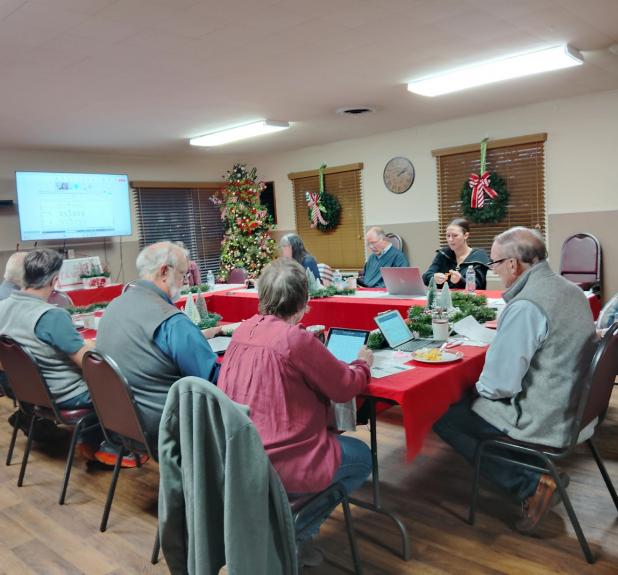
Hospital Bids Come in at Budget
Program Manager Dave Lilley said subcontractor bids for a new Olney hospital show that the project can likely be built for at or under the Olney Hamilton Hospital board of directors’ $27 million budget.
The general contractor, Skiles Group of Dallas, received subcontractor bids on March 13, Mr. Lilley said. A quick analysis of the bids showed that economic pressures, such as President Donald Trump’s general tariffs implemented this month, seemed not to have adversely affected prices beyond the project budget amount.
“I’m happy to report to you … the subcontractor bids have come in under the target amount of $27 million,” Mr. Lilley, the chief executive of Trinity Hughes Construction in Wichita Falls, told the Enterprise in an interview.
Mr. Lilley and representatives from Skiles Group were evaluating the bids and plan to choose the winning bidders by late-March, when Skiles will present a guaranteed maximum bid to the OHH board, he said.
“The procurement process yields hundreds of bids, five to seven (or maybe more) per division, and 30 divisions, so well over 150 [bids],” he said. “You’ve got to literally sit down with all those bids and make sure they have everything in there.”
The guaranteed maximum price [GMP] is the total cost for the project, including all subcontractor and supplier bids, and cannot rise during its 17-month construction period even if, for example, materials costs rise substantially as a result of the tariffs or geopolitical issues, Mr. Lilley said.
“As soon as the supplier or [subcontractor] is identified, it is to their advantage to procure things as quickly as they can … but there is some guesswork involved,” he said.
The OHH board commences the new hospital project with few options to finance cost overruns and in the face of inflation, a trade war, and geopolitical instability roiling the U.S. financial markets.
The OHH board cut obstetrics services, beds, and 14,000 square feet from the hospital plans last year, and raised taxes when it learned that the general obligation bonds that voters approved would not cover the cost of a new hospital.
The board had told voters before the November 2023 bond election that the bonds could be fully repaid from revenue generated by a wind farm in the hospital’s taxing district, and no new taxes would be needed to service the bonds.
